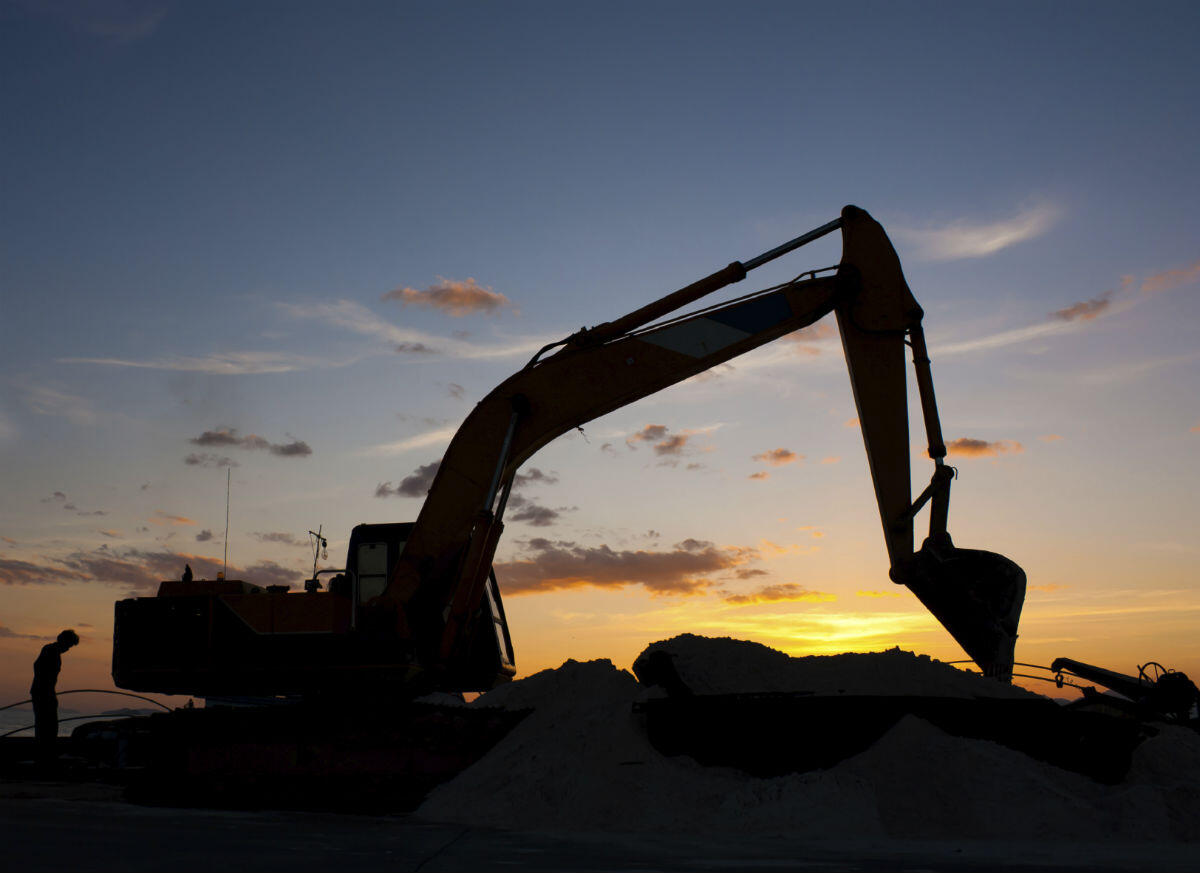Nearly every construction site has at least one excavator and they can be dangerous if not used properly.

Work-related excavator accidents can cause severe injuries which are sometimes fatal. While workplace safety is a big concern for anyone who works in construction, it becomes even more important when a worker is working with any type of heavy equipment.
Falling into Trenches or Holes
One type of accident that commonly occurs is when an excavator either falls or rolls into a hole, trench, or ditch. There are a number of things that can go wrong, like the excavator’s arm striking someone or another vehicle, or the driver or someone nearby getting pinned underneath. The driver could also be tossed around inside the cockpit and suffer injuries as a result.
Striking or Running Over Workers
Just like driving a vehicle, operating an excavator requires a worker to pay close attention to all turns and moves. Operating an excavator requires plenty of space for safe clearance because other workers who are too close could end up being struck by the excavator or by the arm or bucket of the excavator. If the driver does not see how close someone is, they might run over someone.
Lack of Proper Training
One of the biggest factors in excavator accidents is that the driver is not properly trained in how to safely drive and operate the equipment. It is important to provide proper training to operators in a controlled environment.
Lack of Proper Maintenance
While many excavator accidents are a result of driver negligence or of the people around it, improper maintenance of the excavator can also lead to a number of issues, such as vehicle failure. It is important that all vehicles are maintained at a top-level performance to avoid costly accidents and repairs.
Manufacturer Defects
There have been cases in which an accident was the result of a manufacturing defect. Any type of vehicle that has a defective part or has a flaw in the design is extremely dangerous because of the increased risk of accidents. Such accidents are often serious and cause catastrophic injuries.
St. Louis Workers’ Compensation Lawyer
If you are a construction or industrial worker who has been injured in an excavator accident, you may be entitled to workers’ compensation benefits. Workers’ compensation will cover medical expenses and a part of wages lost during the recovery period. If your injuries are permanent, you may be entitled to permanent disability benefits or even a lump-sum settlement. Contact a St. Louis workers’ compensation lawyer for legal assistance. Call The Law Office of James M. Hoffmann at (314) 361-4300 for a free consultation.
Workplace Injury and Accident Causes
Asbestos Exposure
Asbestos Removal
Second Hand Asbestos Exposure
Sexual Assault Workplace
Physical Assault at Workplace
Workplace Injuries Assembly Line
At Fault Accident
Workplace Attack
Benzene Exposure
Injured on Lunch Break
Building Collapse
Workplace Bullying
Chemical Exposure in the Workplace
Chemical Hazards in the Workplace
Cold Stress in the Workplace
Combustible Dust Explosion
Computer Use
Construction Site Accident
Conveyor Belt Accident
On the Job Injury Cause by Coworker
Crane Accident
Injuries from Desk Jobs
Diesel Exhaust Fumes Exposure
Digging Injury
Breaking Company Policy
Drowning at Work
Workplace Drug Use
Electrical Workplace Accidents
Elevator Accident
Equipment Accident
Ergonomics in the Workplace
Excessive Overtime
Workplace Explosion
Extreme Danger
Fall at Work
Fire in the Workplace
Slicer Accident
Forklift Accident
Walk in Freezer
Gas Pipeline Accident
Hard Work
Workplace Hazardous Substances
Hazardous Equipment in the Workplace
Heavy Machinery Accident
Horseplay in the Workplace
Danger at Workplace
Insomnia in the Workplace
Jumping Accident
Ladder Falls at Work
Loading Dock Accident
Machinery Accident Workplace
Equipment Failure Accident
Mining Accident
Mold in the Workplace
Nail Gun Accident
Workplace Noise
Non Collision Accident
Heavy Objects
Workplace Office Equipment
Opioid Use
Injury at Work Due to OSHA Violation
Overexertion Injuries at Work
Use of Pain Killers
Power Tool Injury
Inadequate PPE
Repetitive Motion Injuries in the Workplace
Mansfield Bar
Scaffolding Accident
Secondhand Smoke in the Workplace
Side Effects
Silica Exposure
Sleep Disorder
Slip and Fall Injuries in the Workplace
Stairs at Work
Struck by a Vehicle
Tar Fumes
Toxic Chemical Exposure
Toxic Fumes in the Workplace
Car Accident While Working
Trench Collapse
Trips at Work
Unsafe Working Conditions
Workplace Violence
Welding Injury
Winter Hazards in the Workplace
Working Shifts
